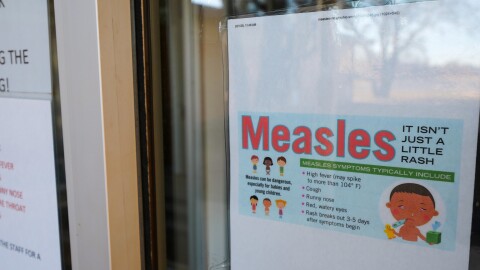-
The enhanced subsidies expired in December, driving up healthcare costs for many.
-
South Carolina's measles outbreak exploded into one of the worst in the U.S., with state health officials confirming 99 new cases in the past three days.
-
The Pitt is back for a new run, evoking the tensions health care providers face in the U.S. today. Here's what one doctor says to watch out for this season.
-
The Trump administration is withdrawing from 66 global groups, including U.N. entities that focus on climate and health issues.
-
Health Secretary Robert F. Kennedy Jr. has announced new dietary guidelines for Americans, including a new food pyramid with red meat, cheese, vegetables and fruits at the top.
-
From beauty treatments to medical procedures, U.S. culture is obsessed with looking and feeling younger.
-
Some common misconceptions keep women from taking optimal care of their health. Here, doctors set the record straight.
-
The Trump administration has unveiled a new food pyramid that puts meat and cheese at the top, alongside fruits and vegetables, and calls for fewer highly processed foods.
-
Most of the targets are U.N.-related agencies, commissions and advisory panels that focus on climate, labor and other issues that the Trump administration has categorized as catering to diversity and "woke" initiatives.
-
Health Secretary Robert F. Kennedy Jr. has announced new dietary guidelines for Americans focused on promoting whole foods, healthy proteins and fats. And he has "declare[d] war" on added sugar.
-
A raccoon in Greensboro and a skunk in Colfax have tested positive for the virus. Guilford County health officials are reminding residents to vaccinate pets and report suspicious wildlife.
-
Scientists are learning more about the harms of wildfire smoke on human health.











